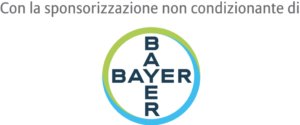In August 2016, the Food and Drug Administration advised US blood centers to screen all whole blood and apheresis donations for Zika virus (ZIKV) with an individual-donor nucleic acid test (ID-NAT) or to use approved pathogen reduction technology (PRT). The cost of implementing this guidance nationally has not been assessed. Scenarios were constructed to characterize approaches to ZIKV screening, including universal ID-NAT, risk-based seasonal allowance of minipool (MP) NAT by state, and universal MP-NAT. Data from the 2015 National Blood Collection and Utilization Survey (NBCUS) were used to characterize the number of donations nationally and by state. For each scenario, the estimated cost per donor ($3-$9 for MP-NAT, $7-$13 for ID-NAT) was multiplied by the estimated number of relevant donations from the NBCUS. Cost of PRT was calculated by multiplying the cost per unit ($50-$125) by the number of units approved for PRT. Prediction intervals for costs were generated using Monte Carlo simulation methods.
RESULTS
Screening all donations in the 50 states and DC for ZIKV by ID-NAT would cost $137 million (95% confidence interval [CI], $109-$167) annually. Allowing seasonal MP-NAT in states with lower ZIKV risk could reduce NAT screening costs by 18% to 25%. Application of PRT to all platelet (PLT) and plasma units would cost $213 million (95% CI, $156-$304).
CONCLUSION
Universal ID-NAT screening for ZIKV will cost US blood centers more than $100 million annually. The high cost of PRT for apheresis PLTs and plasma could be mitigated if, once validated, testing for transfusion transmissible pathogens could be eliminated.
2017 Jun;57 Suppl 2:1625-1633. doi: 10.1111/trf.14164.
Cost projections for implementation of safety interventions to prevent transfusion-transmitted Zika virus infection in the United States.
Ellingson KD1,2, Sapiano MRP1,3, Haass KA1, Savinkina AA1,4, Baker ML1,5, Henry RA6, Berger JJ6, Kuehnert MJ1, Basavaraju SV1.



